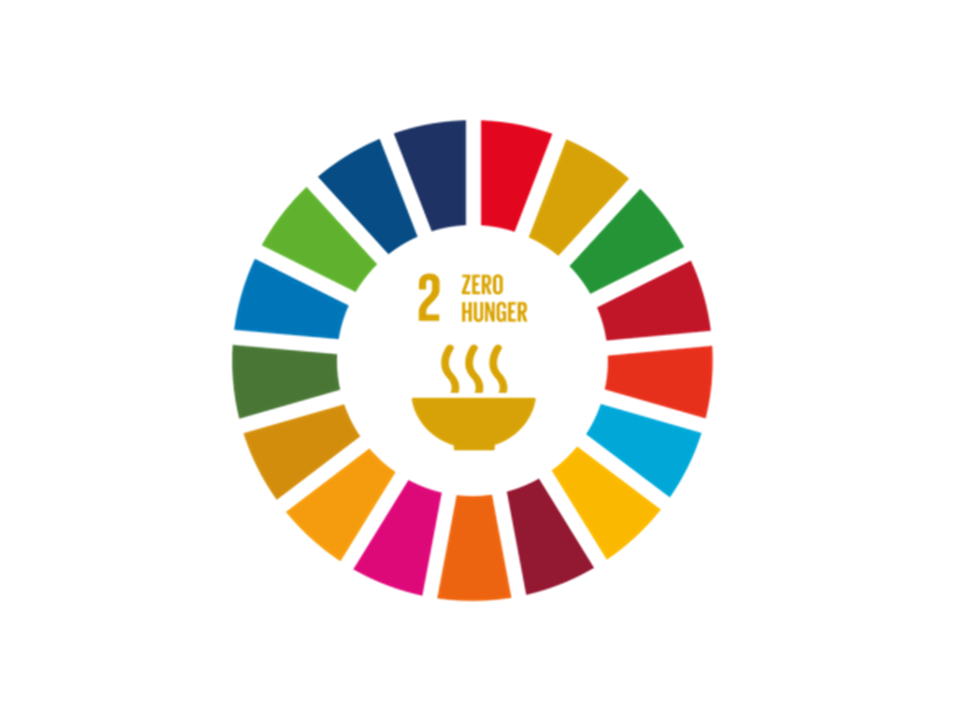Pick Up
1305. Progress towards the Sustainable Development Goals

1305. Progress towards the Sustainable Development Goals
The High-level Political Forum on Sustainable Development (HLPF) was held from July 14th (Mon) to 23rd (Wed), 2025, and discussed “Advancing sustainable, inclusive, science- and evidence-based solutions for the 2030 Agenda for Sustainable Development and its Sustainable Development Goals for leaving no one behind”.
On this topic, the Progress towards the Sustainable Development Goals Report of the Secretary-General provides a global overview of progress made in the decade since the adoption of the 2030 Agenda for Sustainable Development in 2015 and identifies areas where decisive action is needed to achieve the Sustainable Development Goals by 2030. Below are highlights of progress on development goals related to food security:
Available data shows that the world is making good or moderate progress on 35% of the 137 Sustainable Development Goals (SDGs). Progress is insufficient on 47% of targets, and 18% have regressed from the 2015 baseline. With just five years until the 2030 deadline, it is crucial to intensify efforts to reverse these trends, as reaffirmed in the report.
While progress on some goals has been uneven and limited, there have been impressive gains across regions and countries, showing that change is possible. Since 2015, extreme poverty has declined worldwide, and the number of people classified as working poor has fallen by 20 million despite the severe impact of the global pandemic. In 2023, for the first time, more than half of the world's population (52.4%) was covered by at least one social security benefit, up from 42.8% in 2015. However, despite these improvements, more than 700 million people remain in extreme poverty and remain at high risk of falling into or back into poverty due to compounding shocks and crises.
Since 2015, progress towards eradicating hunger, improving nutrition, and promoting sustainable agriculture has been mixed, mainly due to ongoing conflicts, global food crises, and climate-related challenges. Notable improvements include reductions in child stunting and wasting and modest gains in dietary diversity among young children. However, hunger and food insecurity have worsened, with more than 750 million people still hungry and more than 2.3 billion facing food insecurity. Smallholder producers still earn significantly less than their larger counterparts. Public spending on agriculture is expected to reach a record high of $701 billion in 2023 but still represents less than 2% of total government spending, reflecting the need for further investments and urgent action to strengthen food systems.
Climate action remains well below what is needed to achieve commitments under the 2030 Agenda and the Paris Agreement. Global temperatures crossed the 1.5°C threshold in 2024, making it the hottest year on record. Carbon dioxide concentrations reached 151% of pre-industrial levels, the highest level in more than 2 million years. Meanwhile, ocean acidification and the risk of species extinction continue to rise.
One of the key achievements in the implementation of the 2030 Agenda has been the notable improvement in data availability, which has strengthened the evidence base for policymaking. However, given gaps in existing disaggregated data, large-scale and long-term investments are needed, both domestically and internationally, and political will and sustained funding are essential for effective, data-driven action.
Amid intensifying climate change, geopolitical tensions, economic shocks, and growing fragility, progress towards achieving the goals remains well short of the scale and speed required. Urgent action is essential to reverse worrying trends and consolidate hard-won gains. With insufficient progress on 47% of the goals and regression on 18%, there is a risk that more than two-thirds of the goals will not be achieved. Six agreed transitions, which are said to have catalytic and ripple effects across the goals, are key to driving transformation at the country level: (a) food systems, (b) energy access and affordability, (c) digital connectivity, (d) education, (e) jobs and social protection, and (f) climate change, biodiversity loss, and pollution.
Sustained multilateral engagement is essential to maintain the achievability of the goals. The Fourth International Conference on Financing for Development, the Second UN Food Systems Summit Stocktake, the Second World Summit for Social Development, the 2025 UN Conference in Support of the Implementation of Sustainable Development Goal 14 "Conserve and Sustainably Use Marine and Marine Resources for Sustainable Development", the G20 Summit, and the 30th Conference of the Parties to the UN Framework Convention on Climate Change will be timely and strategic platforms to advance joint efforts on the 2030 Agenda.
(Reference)
General Assembly Economic and Social Council. Progress towards the Sustainable Development Goals Report of the Secretary-General. High-level political forum on sustainable development, convened under the auspices of the Economic and Social Council. https://docs.un.org/en/a/80/81&i=A/80/81_1748035261784
Contributor: IIYAMA Miyuki, Information Program
